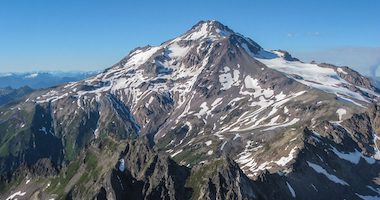Mountaineering Training | Setting a Baseline: Evaluating Your Current Fitness
Posted by:
Categories: Mountaineering Fitness & Training
To begin a conditioning plan for mountaineering, first establish the baseline of your current fitness level. This baseline allows you to compare your current strengths to what you’ll need on the climb. With this, we can compose a training plan that builds steady improvement between now and the day you set off for the mountains.
To illuminate the task ahead, and to build a plan, consider these questions:
• What are the physical requirements of the climb (ie. pack weight, number of days, hours spent each day)?
• How much time do I have before I climb?
• What are my fitness strengths?
• How much weight can I carry and for how long?
To determine the physical requirements of the climb, look to RMI’s office and website. RMI provides details on the equipment we will be carrying, the itinerary, and the duration of the climb.
How much time is there before the climb? Take out a calendar or a blank sheet of paper and consider how to fit in the three phases of training:
1. Beginning (adaptation)
2. Building
3. Peaking (the final preparation before the climb)
Assessing your fitness strengths with a visit to a qualified athletic trainer will help to quantify your current level of fitness. Or, visit a park and hike your favorite loop or trail with a weighted backpack to gain realistic insight into your capabilities. What I like about assessing the time and weight is that it is simple and you can do it today.
As we move ahead, I encourage you to think about whether you prefer to approach your training scientifically or intuitively. Do you prefer hiring a coach, or do you like to be your own coach? Both methods are successful - sometimes a combination is a nice way to go about it. Throughout training, I encourage you to be consistently aware of two important factors: How long can I go? How much can I carry? On the mountain, these two things really matter.
As an exercise for this week, set aside time to visit a park, sports stadium, or a local hiking area. See how it feels. The purpose of this session is not to push to a maximum effort but to simply experience how it feels to carry a pack up and down inclines.
My encouragement is to not do too much. The "safety first" rule applies to training as well as the mountains. Too much too soon can have a negative effect, or even risk an injury. If this is new to you... don’t feel overwhelmed if today you feel that you have a long way to go.
Two years ago in October, I trained with my friend Kim Porto. She had her sights set on climbing Mt. Rainier and trekking to Everest Base Camp during the following eighteen months. She had never hiked before. On day one, we walked stairs for twenty minutes with our running shoes and no pack. It was enough. From there, we mapped out a plan that steadily increased the training with hiking, stair work, and strength training. By steady training over the months ahead, Kim accomplished both her Rainier climb and her trek to Everest Base Camp.
Remember that moderation and consistency are the keys to success in building endurance!
- John Colver
John Colver is a longtime climber, former mountain guide, and certified personal trainer with the American Council of Exercise. Colver introduced outdoor fitness classes to athletic clubs throughout the greater Puget Sound region before creating his adventX brand. Currently, adventX leads training programs in Seattle and Colver presents clinics on outdoor fitness at companies such as Microsoft, Boeing, the American Lung Association, and REI. Colver lives in Seattle.
Questions? Comments? Share your thoughts here on the RMI Blog!
More to Explore
Mountaineering Training | Planning Your Training: F.I.T.T.
October 15, 2012













